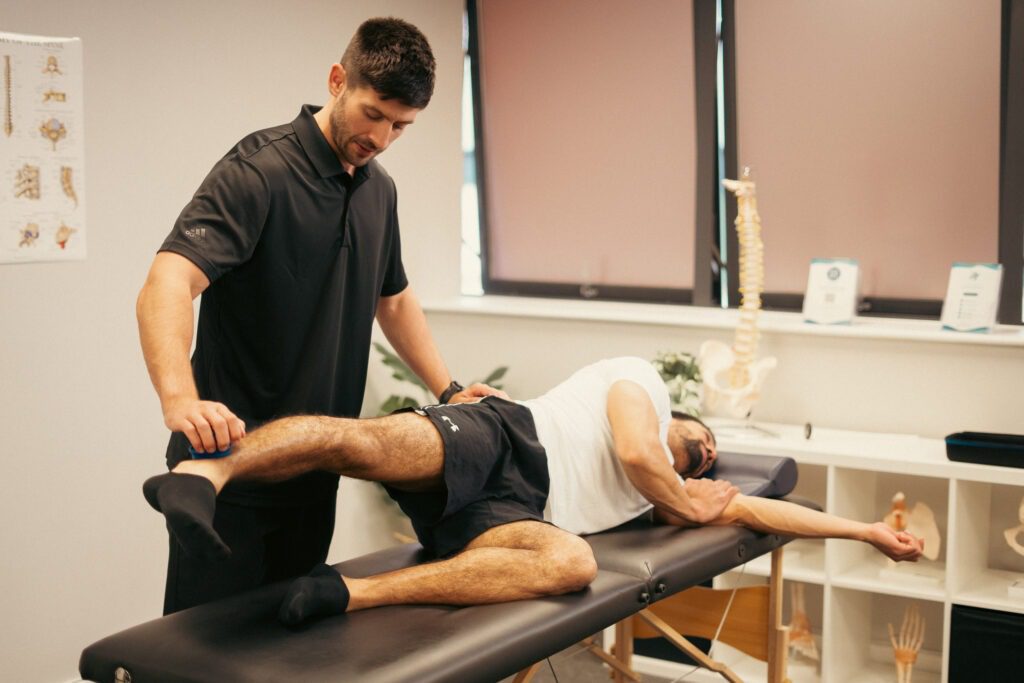Maximizing Marathon Performance: Pre and Post-Race Recovery Strategies
As a Physiotherapist specialising in sports injuries, I’ve worked with numerous marathon runners aiming to achieve their peak performance while minimising the risk of injuries. Whether you’re a seasoned marathoner or gearing up for your first race, understanding the importance of pre and post-race recovery can make all the difference in your performance and overall well-being.
In this blog post, I’ll delve into some evidence-based tips to optimise your marathon journey, and how Physiotherapy and Sports Massage can play pivotal roles in your success.

Pre-Race Preparation:
1. Gradual Training Build-up: Recent research highlights the significance of gradual training progression to reduce the risk of overuse injuries. Aim for a structured training plan that incorporates incremental increases in mileage, allowing your body to adapt gradually. If you are unsure of which training plan to follow or would like a personalised plan get in touch with one of our physiotherapists.
2. Strength and Conditioning: Incorporate strength and conditioning exercises into your training regimen to enhance muscle strength, stability, and endurance. Focus on exercises targeting key muscle groups involved in running, such as the quadriceps, hamstrings, glutes, and core muscles.
3. Proper Nutrition and Hydration: Fuel your body with a balanced diet rich in carbohydrates, protein, and healthy fats to support your training and recovery needs. Stay adequately hydrated before, during, and after your runs, paying attention to electrolyte balance.
4. Rest and Recovery: Prioritise sufficient rest and recovery periods between training sessions to allow your muscles to repair and adapt. Incorporate active recovery techniques such as foam rolling, stretching, and low-impact activities like swimming or cycling.
Post-Race Recovery:
At Light Joints Physiotherapy, our therapists utilise a range of techniques to address individual concerns. From effleurage to petrissage, each movement is carefully chosen to improve circulation, alleviate muscle soreness, and enhance flexibility. Understanding these techniques allows you to appreciate the personalised care you’ll receive during a sports massage session.
How Physiotherapy and Massage Therapy Can Help:
1. Injury Prevention: Physiotherapy sessions can identify potential areas of weakness or imbalance, allowing for targeted interventions to prevent injuries before they occur.
2. Pain Management: Whether you’re dealing with acute muscle soreness or chronic pain, physiotherapy techniques such as manual therapy, therapeutic exercises, and modalities like ultrasound or electrical stimulation can help alleviate discomfort and promote healing.
3. Optimised Performance: By addressing biomechanical inefficiencies and enhancing functional movement patterns, physiotherapy can help you optimise your running technique and performance potential.
4. Rehabilitation and Recovery: If you’re recovering from a marathon-related injury or struggling with post-race soreness, physiotherapy and Sports Massage can expedite the healing process, allowing you to return to running stronger and more resilient than before.
Conclusion
As you embark on your marathon journey, remember that proper preparation and recovery are essential for achieving your performance goals while minimising the risk of injuries. By incorporating evidence-based strategies such as gradual training progression, strength and conditioning, and targeted recovery techniques, you can enhance your marathon experience and unlock your full potential as a runner. Don’t hesitate to leverage the expertise of physiotherapy and massage therapy professionals to support your training journey and keep you running strong for miles to come.
